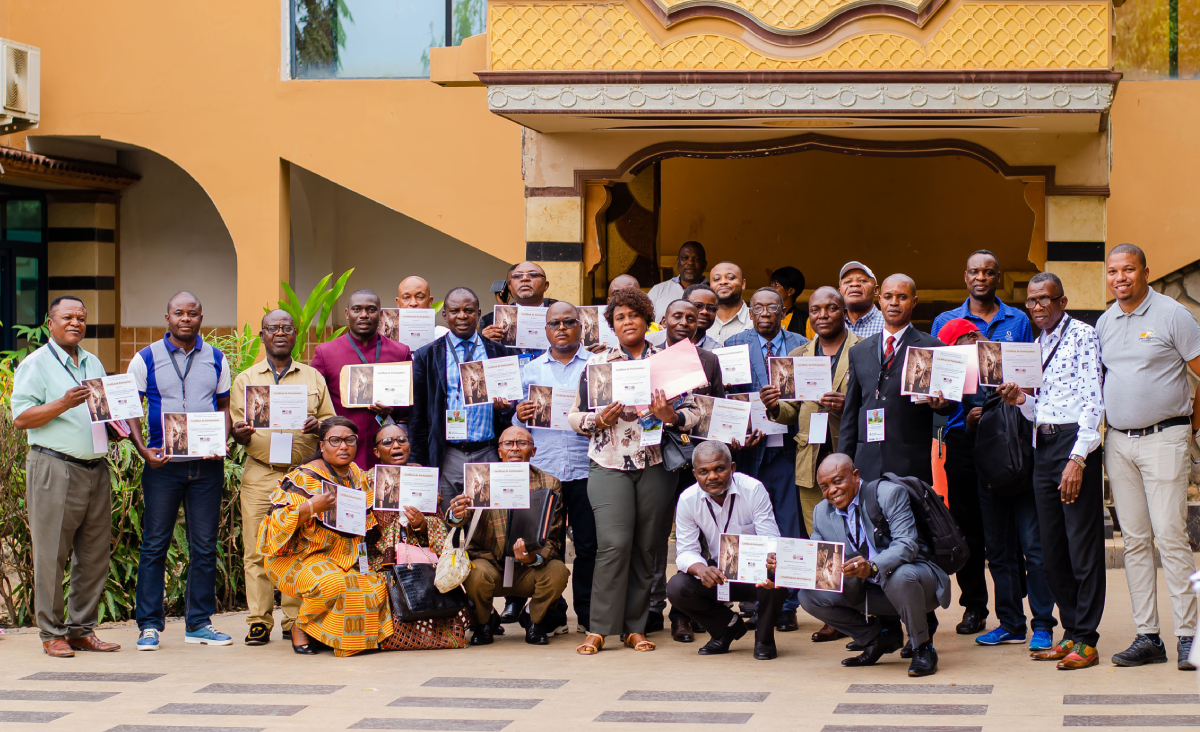On the busy Port of Matadi, the biggest deep-water port within the Democratic Republic of the Congo (DRC), Thomas Bile Bekoka, an inspector on the Workplace Nationwide des Transports (ONATRA), has lengthy targeted on port logistics. Nonetheless, like a lot of his colleagues, he was largely unaware of the rising impression of wildlife trafficking shifting by the port.
Matadi’s strategic location alongside the Congo River and proximity to worldwide delivery lanes make it a vital node within the multi-billion-dollar wildlife trafficking community. Regardless of present legal guidelines defending endangered species, gaps in coaching, collaboration, and prosecution permit unlawful merchandise to circulate comparatively unchecked by DRC ports.
“I didn’t know that wildlife species are protected even outdoors their pure habitats,” Bekoka mentioned. “Now that I do know traffickers change their concealment strategies day by day, I’m motivated to be extra vigilant on the port.”
Wildlife trafficking has reached vital ranges within the DRC, which serves as each a supply and transit hub for illicit wildlife merchandise. The impression on native wildlife populations is devastating. For instance, because of poaching, the nation’s elephant inhabitants plummeted from round 100,000 within the early Nineteen Eighties to an estimated 6,000–10,000 by 2017, in keeping with DRC’s Nationwide Plan for Ivory (PANI).
In 2016, the African Wildlife Basis (AWF) carried out a preliminary evaluation figuring out 4 vital obstacles to efficient CITES implementation on the DRC’s borders. These included restricted experience in figuring out unlawful wildlife merchandise, inadequate inter-agency coordination, insufficient investigative practices, and weak prosecution leading to minimal penalties for offenders. These gaps have allowed wildlife trafficking to flourish, exploiting border vulnerabilities and undermining broader conservation efforts.
Whereas the Institut Congolais pour la Conservation de la Nature (ICCN) enforces wildlife safety legal guidelines inside DRC’s protected areas, its mandate doesn’t prolong to frame management. This underscores the necessity for collaboration with border legislation enforcement to forestall unlawful wildlife commerce and successfully implement CITES rules.
“The DRC’s position as a supply and transit nation for illicit merchandise, equivalent to ivory and pangolin scales, underscores the necessity for robust authorized measures and legislation enforcement,” says Joe Kassongo, Senior Authorized Officer at AWF.
Between 2021 and 2024, AWF with help from the U.S. State Division’s Worldwide Narcotics and Regulation Enforcement (INL) division skilled 150 brokers from varied enforcement our bodies on CITES rules, species identification, unlawful commerce detection, and human rights. One other 100 officers obtained specialised coaching in crime scene administration and proof dealing with, important expertise in a sector the place prosecution depends on meticulous proof.
AWF Nation Coordinator, DRC Antoine Tabu arms over crime scene kits in Kinshasa.
To help these efforts, AWF supplied $41,000 value of crime scene administration kits and workplace gear, enabling subject operations at N’jili Airport and Matadi Port.
“With this new gear and coaching, we will handle crime scenes successfully — a functionality we by no means had earlier than,” mentioned Audace Amisi, deputy director of the anti-fraud brigade at N’djili Worldwide Airport.
In a profitable operation, a crew of seven Judicial Police Officers (OPJs), intensively skilled on the Institut Nationwide de Formation des Officiers de la Police Judiciaire (INAFORJ), seized 20 kilograms of pangolin scales and rescued three sitatunga antelopes. Additionally they arrested three traffickers in Kinshasa, whose circumstances at the moment are earlier than the courts.
Pangolin scales seized on the port of Matadi, (left), and Ivory necklaces seized at N’jili airport.
“For our first subject operation, it was emotional however rewarding,” mentioned Berthold Ofutanya, OPJ unit commander. “We’re growing the talents wanted to make an actual impression in preventing wildlife trafficking.”
AWF’s mission has additionally fostered stronger inter-agency collaboration amongst ICCN, N’djili Airport, Matadi Port, and CITES Coordination RDC. Beforehand, ICCN had no jurisdiction at border factors, however now, by AWF’s initiative, ICCN works seamlessly with port and airport officers, unifying efforts to fight wildlife crime.
“Collaboration between officers at N’djili Airport, Matadi Port, and CITES RDC has turn into smoother,” mentioned Antoine Tabu, AWF Nation Coordinator, DRC. “These companies at the moment are aligned in preventing wildlife crime, with out AWF needing to function a bridge.”
To broaden help for wildlife safety, AWF hosted a symposium selling finest practices and collaboration with civil society organizations, NGOs, and neighborhood teams. This expanded community amplifies efforts to guard DRC’s wealthy biodiversity.
“The success of the INL mission within the DRC represents a significant step ahead in combating wildlife trafficking,” mentioned Kassongo. “Our dedication to coaching, assets, and inter-agency cooperation lays a stable basis for sustainable wildlife safety.”
AWF’s Director, Counter Wildlife Trafficking Program, Didi Wamukoya, emphasised the significance of ongoing efforts: “Simply as nobody can survive with a single lung, this mission has helped shield the Congo Basin’s forests, one of many world’s lungs. I hope that everybody concerned will proceed these efforts, because the combat in opposition to wildlife trafficking should go on.”
